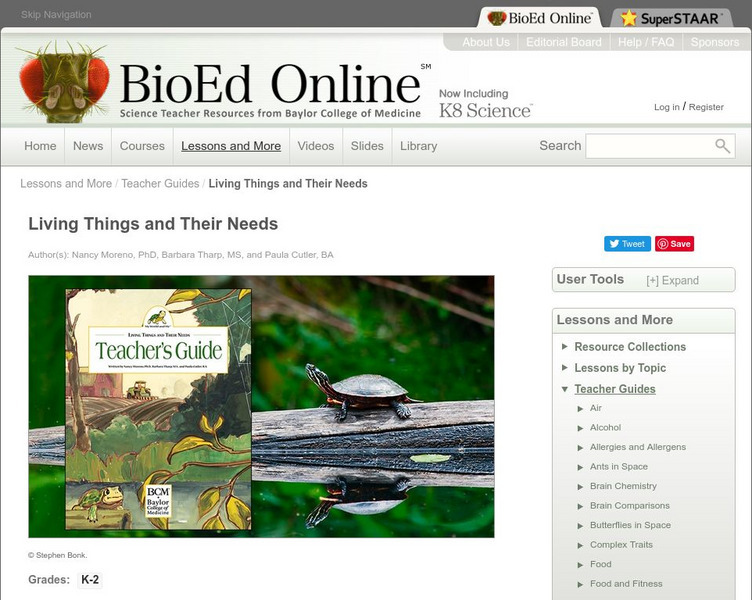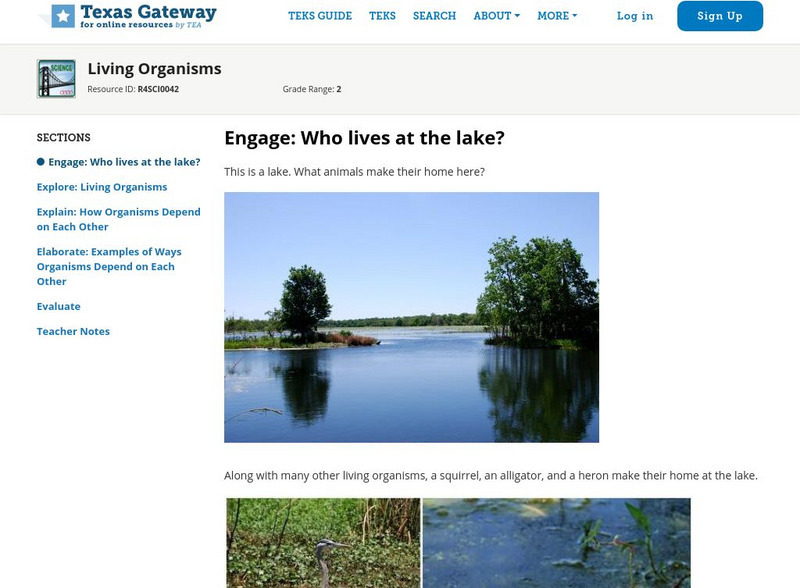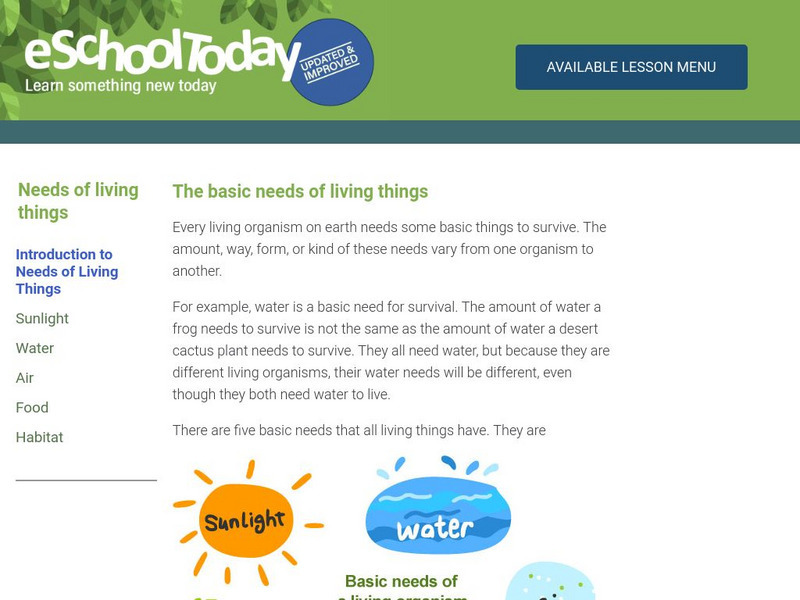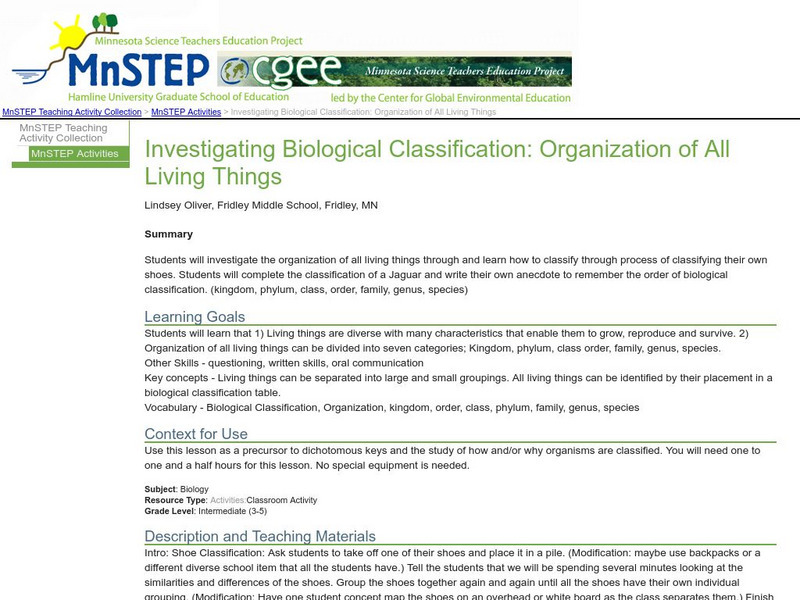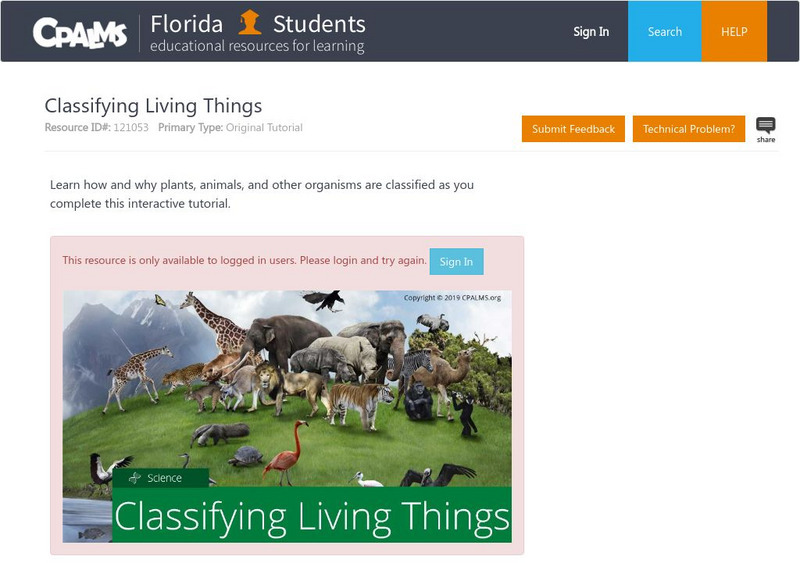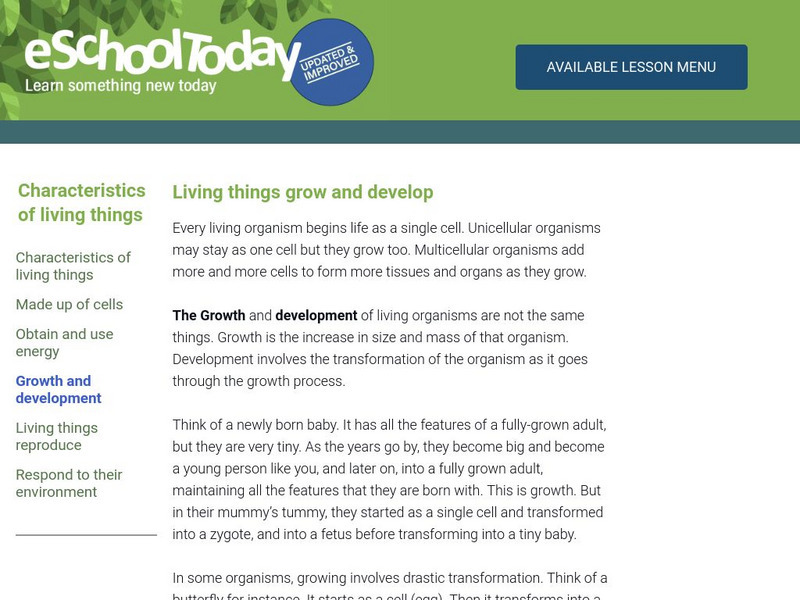Hi, what do you want to do?
Science Education Resource Center at Carleton College
Serc: Investigating What Living Things Need: Space
A lab experiment where students study what living things need to survive. Students will observe plant growth over several weeks.
BioEd Online
Bio Ed Online: Living Things and Their Needs Teacher's Guide
This is a free downloadable teacher's guide (PDF) to teach young children (grades K-2) about living things and their needs.
BioEd Online
Bio Ed Online: Needs of Living Things: Pre Assessment
This is a pre-assessment to be done at the beginning of a unit on the needs of living things. Students draw themselves and what they need to survive. The lesson can be downloaded in PDF format.
BioEd Online
Bio Ed Online: Needs of Living Things: Post Assessment
A post-assessment at the end of a unit on the needs of living things. The lesson materials can be downloaded in PDF format.
PBS
Pbs Learning Media: The Needs of Living Things
In this activity, students watch video clips of animals and plants in their natural environment, to gather evidence that all living things have basic needs that must be met in order to survive. Then, to illustrate their understanding of...
BioEd Online
Bio Ed Online: Living Things and Their Needs: We Need Water
This lesson focuses on living things' need for water. Students make lemonade and learn that water can be found in liquids other than a glass of water, and is also found in plants. The lesson can be downloaded in PDF format.
Texas Education Agency
Texas Gateway: Living Organisms
Guide your students through a learning module about living organisms in a lake environment.
Utah STEM Foundation
Utah Stem Action Center: Sorting Living Things
Living things live in places that have what they need to survive. Since fish don't breathe air, they need to live in an ocean. That one is pretty obvious, but what about different kinds of trees? Can all animals that breathe air live...
eSchool Today
E School Today: Your Revision Notes on the Needs of Living Things
Learn about the five things that all living things need to survive and why they are critical for both plants and animals.
CK-12 Foundation
Ck 12: Life Science: Organization of Living Things
[Free Registration/Login may be required to access all resource tools.] When you see an organism that you have never seen before, you probably put it into a group without even thinking. If it is green and leafy, you probably call it a...
eSchool Today
E School Today: Your Revision Notes on the Characteristics of Living Things
Discusses the five characteristics that living things have and nonliving things do not.
CK-12 Foundation
Ck 12: Life Science: 11.9 Organization of Living Things
Learn the system that scientists use to classify living things.
Other
Science4 Us: Living/nonliving
Students explore the similarities and differences between living and nonliving things and learn four characteristics that all living things share (they have needs, they are made up of parts, they respond to change, they reproduce)....
Utah Education Network
Uen: Going on a Living and Nonliving Hunt
Distinguish between things that are living, things that were once-living, and things that are nonliving.
Utah Education Network
Uen: Trb 3:2 Investigation 1 Intro: Living & Nonliving
Third graders learn to distinguish between living and nonliving things.
E-learning for Kids
E Learning for Kids: Science: Denmark: How Can We Define Living and Non Living Things?
Martin Dahl, a Danish scientist, does research on living things and non-living things. Come see what he discovers.
E-learning for Kids
E Learning for Kids: Science: Scotland: How Can We Group Living Things Based on Characteristics?
Lilly is from Peru, and she's traveling the world. Right now, she's in Scotland. Join her while she studies living and non-living things.
Science Education Resource Center at Carleton College
Serc: Investigating Biological Classification: Organization of All Living Things
All living things can be identified by their placement in a biological classification table. Students will investigate the organization of all living things and learn how to classify through the process of classifying their own shoes....
Science Education Resource Center at Carleton College
Serc: Investigating Fossils and Living Organisms
In this lab, students will observe and compare fossils with living organisms by making a "fossil" and comparing it to a real fossil and the "organism" it was made from.
American Institute of Biological Sciences
Action Bioscience: Dna Patents Create Monopolies on Living Organisms
An article that argues patenting living organisms is unethical. Check out the argument and accompanying resources.
CPALMS
Florida State University Cpalms: Florida Students: Classifying Living Things
Learn how all living things are classified.
Other
Biology at Shaw High School: What Do Living Things Need to Survive?
Discusses the interrelatedness of all living things and of ecosystems and biomes, and what organisms need to survive and to maximize the carrying capacity of an ecosystem. This explanation is followed by a series of activities including...
E-learning for Kids
E Learning for Kids: Science: Antarctica: How Are Living Things Described?
Learn about the different levels of organization in living things, from cells to organisms.
eSchool Today
E School Today: Living Organisms Grow and Develop
See how living things grow and develop.






